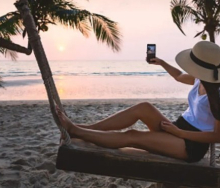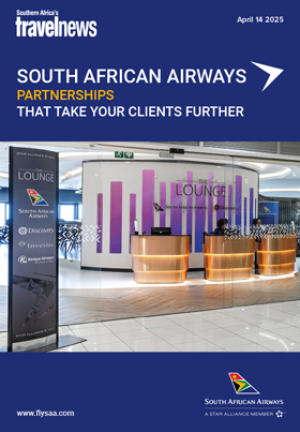Retail travel agents face new challenges during the post-pandemic era. Some of these might not have existed before COVID-19 and others were insignificant niggles that have grown in importance.
Some of the most significant challenges that have emerged are:
Engagement at the right time
In the new age of technology, a lot of travel content is available online. Due to lockdown, consumers have grown in dependency on information found online. Very often before consulting with a travel agent, travellers conduct online research and find a variety of travel options.
By the time they consult a travel agent, they already have specific ideas of what they want, very often based on searches for the cheapest options, leaving very little space and opportunity for travel agents to exercise their expertise – offering advice and suggestions that will provide real value for money.
While travel agents know they can offer benefits and extra value that may not be offered on online platforms, it is essential they create opportunities to engage with travellers early in the process, before it all becomes an issue of comparing apples with pears and the search is for the cheapest price.
By not being able to engage with a traveller you are not able to demonstrate the value that comes with your service.
Fear of technology
As new technologies emerge, such as AI and online booking platforms, some travel agents fear they will replace them.
Instead of seeing technology as an enabler, they may see it as a replacer of the expertise and skills we know our travel agents have. The technophobes might want to consider losing their fears and embracing this new tech.
So, when addressing the fear of technology, it’s important to create an alternative mindset surrounding the use of it with emphasis on how it can be used to improve travel agents’ businesses, rather than being seen as a competitor.
Two simple uses of AI for travel agents include:
Maintain and expand the customer base
AI can assist agents with engaging with their travellers and providing information online. However, AI will still allow travel consultants to use their expertise to develop unique travel packages and give their travellers a full experience.
Provide information after working hours
AI can answer basic questions and provide information after office hours, as more travellers are researching travel online when travel agents are not available or online. This will keep the traveller engaged and wanting to learn more and this is where the expertise of the agent can again come in. The agent can qualify a traveller and possibly want to engage with them at that point.
The challenge of integrating content, fast
Travel agents use a variety of content derived from suppliers, the GDS, online booking platforms, and offline sources, to curate perfect packages for their travellers.
Travellers today are looking for unique experiences and some of these experiences are not necessarily flight, car, and hotel, but rather excursions, uncharted territory, etc. Some would like guided narratives or a reframe on a specific itinerary for a specific traveller profile, e.g. cruising for a very elderly couple, or a special day tour of Paris for someone with an interest in French classical music, etc.
This can be particularly difficult with young Millennial and Gen Z travellers, as they often refer to social media posts as references for their travel aspirations and are looking for more unique, unknown hole-in-the-wall destinations.
Travel agents must collect all this content from a variety of sources and quickly integrate it into a presentable, cost-effective package before losing the traveller to a competitor. And nowadays, travellers are speaking to multiple travel agencies at once. This increases the pressure on travel agents to be the first to offer a package and to provide the best package among many others.
Understanding social media platforms
Navigating social media can be challenging. An unfortunate habit that accompanies social media platforms, is users’ need for instant gratification in order to remain engaged.
Social media needs to be constantly monitored and invested in. Queries need to be answered quickly to hold potential travellers’ interest, and regular posts of new content are needed to maintain a following and engagement.
This means that travel agents need to put effort into establishing an aesthetic and a following to attract more travellers. Additionally, on social media, information, offers, packages and contact details need to be easy to find.
Social media platforms are a powerful marketing, networking, and relationship-building tool if used correctly. However, it takes time, research, and investment to understand how to use them to reach travellers and engage with new potential travellers.
Some tips to consider include using the platforms to archive travellers’ reviews and stunning experiences. The content can be used to attract new travellers while proudly displaying your relationship with current travellers. Furthermore, profile analytics need to be well understood for targeted marketing.
Remember, technology is the enabler, but the expertise remains with you, the consultant.
















